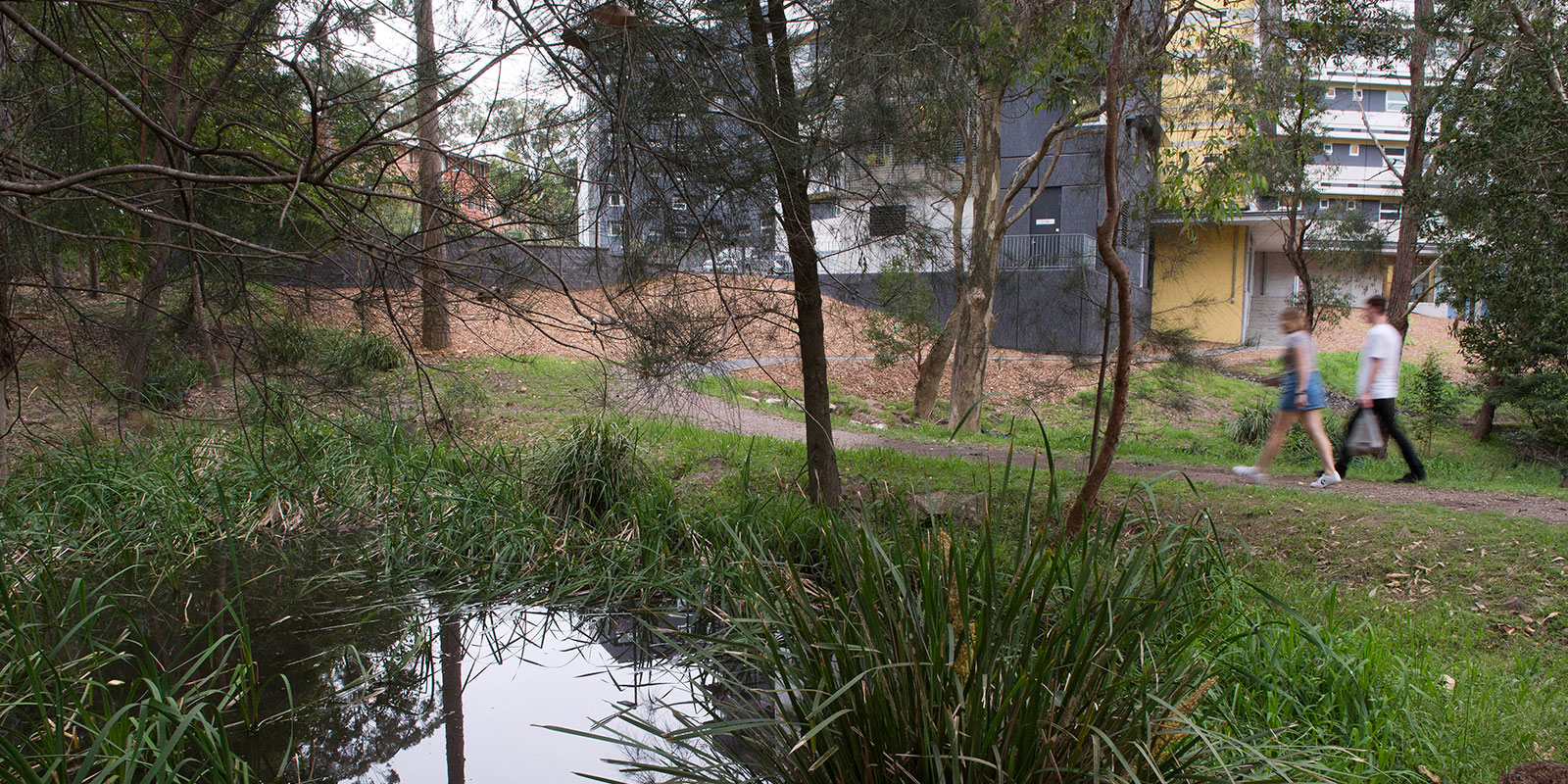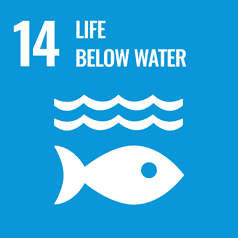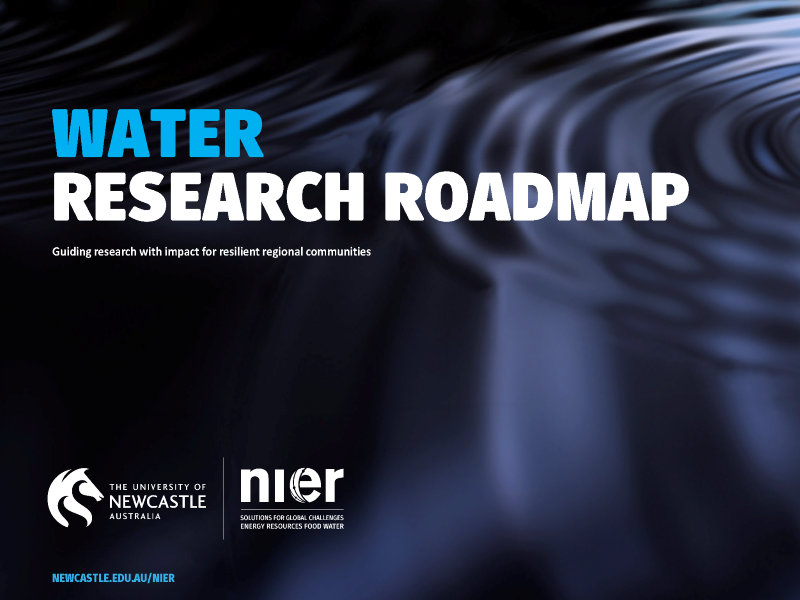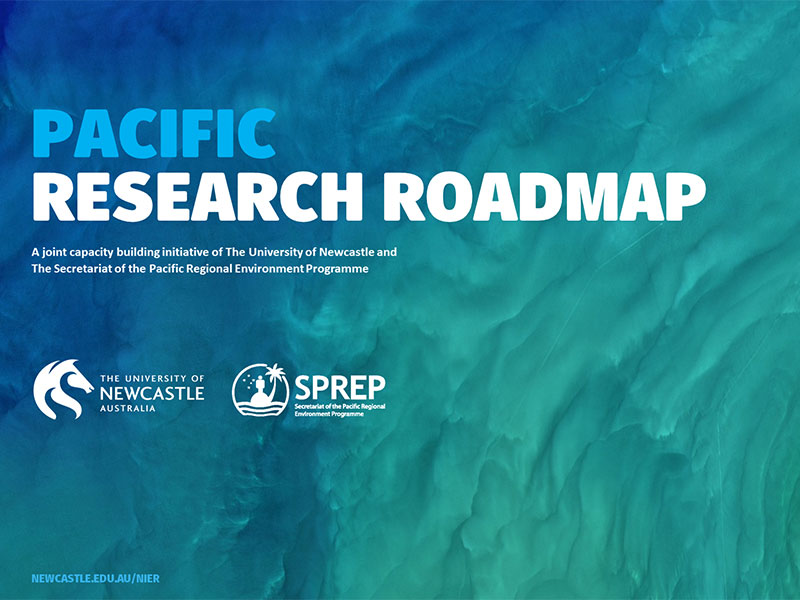

Goal 14:
Life Below Water
Fresh-Water Ecosystems
The University of Newcastle actively contributes to education and capacity-building programs focused on freshwater ecosystems, water management, and environmental resilience — both locally and within the broader Pacific region.
One key example is the University’s strategic partnership with the Cook Islands National Environment Service (NES), reflecting a shared commitment to:
- Advancing scientific research and education on environmental sustainability
- Promoting capacity development in water resource management and ecosystem conservation
- Supporting knowledge exchange on freshwater conservation, irrigation practices, and climate resilience
This collaboration includes the exchange of research methodologies, educational materials, and community-based learning initiatives designed to address local and global water-related challenges. The partnership not only supports the Cook Islands and Samoa but contributes to a broader Pacific regional platform for innovation and sustainable development.
Through such initiatives, the University of Newcastle continues to play a leading role in promoting education, research, and sustainable practices related to freshwater ecosystems.
2024 Highlights:
- Course: ENVS2009 – Catchment and Water Resource Management
This 2nd‑year course gives students a detailed grounding in ecology of freshwater systems, factors affecting water quality, and balancing human water use with the health of aquatic habitats. - Course: ENVS3009 – Advanced Water Science and Resource Management
A 3rd‑year course offered in 2024, covering modern challenges in water supply management, emerging contaminants, environmental regulations, and ecosystem function. Students engage in simulation and real‑world scenario work to practise management of water supply resources. - “Smarter Water Use” Initiative (Campus‑based, operational & conservation)
The University is implementing large‑scale water‑saving initiatives across campuses: using harvested rainwater for irrigation (e.g. sporting fields, like Oval 3), deploying smart irrigation controllers with weather integration and leak detection, and installing stormwater retention dams and tanks. These are intended to reduce mains water usage, improving water conservation in physical campus operations. - Water Management Research & Education Centres / Strategy
The University has developed a Water Research Roadmap aimed at guiding research into water management, particularly for regional communities. Several research groups/centres are active in areas including: drinking water catchment quality, greywater reuse, urban stormwater control, constructed wetlands for wastewater treatment. These groups also support undergraduate, postgraduate, and professional training.

Water Research Roadmap
This Roadmap identifies the guiding principles and priority actions necessary to support a quality, sustainable water supply into the future. It proposes how the sector can adapt and respond to uncertainties in order to meet current and future water needs, sustain healthy communities, support regional economic prosperity and protect and restore ecosystems and biodiversity values.

Pacific Roadmap
This Roadmap describes the partnership between the Secretariat of the Pacific Regional Environment Programme (SPREP) and University and launches a research plan as the first step to deliver co-operative and sustainable solutions to complex challenges faced by Pacific island people in critical areas of environmental need and national priority.
The University of Newcastle acknowledges the traditional custodians of the lands within our footprint areas: Awabakal, Darkinjung, Biripai, Worimi, Wonnarua, and Eora Nations. We also pay respect to the wisdom of our Elders past and present.